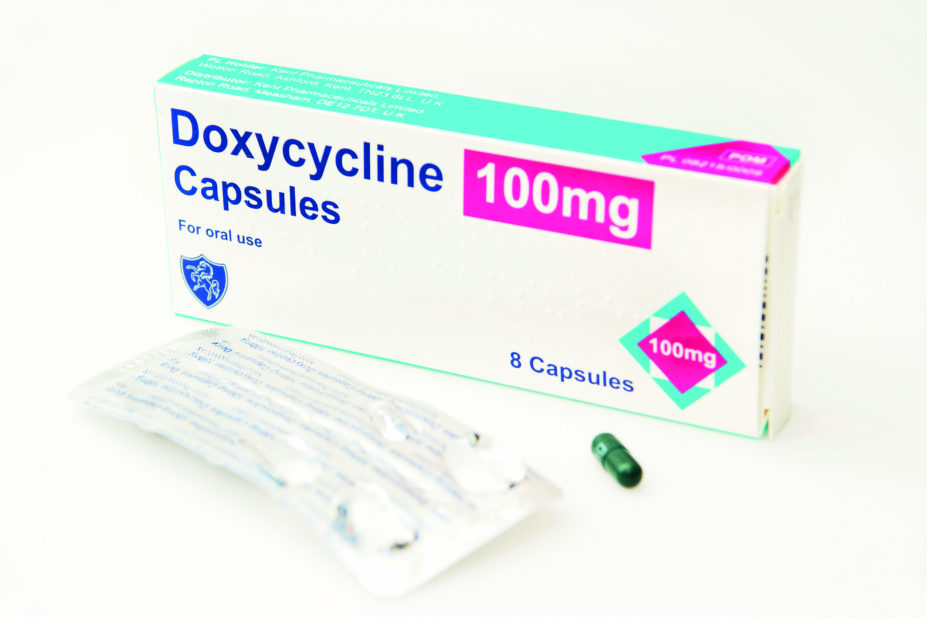
Libby Welch / Alamy Stock Photo
A common antibiotic that reduces an individual’s fear memory could be used to treat people with post-traumatic stress disorder (PTSD).
In a trial of the antibiotic doxycycline, fear retention was around 60% lower in people who had been given the antibiotic compared with others who were given a placebo.
Writing in the latest edition of Molecular Psychiatry[1]
, the researchers say: “Our findings have potentially direct therapeutic implications. They suggest that tetracycline antibiotics … could be used for primary prevention of fear memory acquisition in persons known in advance to be potentially exposed to trauma.”
The researchers, who were from University College London and the University of Zurich, based their conclusions on the results of a placebo-controlled, double-blind trial involving 76 healthy volunteers.
The volunteers were divided into two equal groups – 38 individuals were given 200mg of doxycycline and 38 were administered a placebo.
Three and half hours later, the volunteers were asked to sit in front of a computer while the screen flashed either blue or red. One of the colours was associated with a 50% chance of receiving a painful electric shock. The flash was repeated 160 times at random so the volunteers learned to associate the ‘bad’ colour with the shock.
Follow-up was carried out seven days later, but this time the volunteers were not given the antibiotic. The experiment was repeated at the follow-up but, instead of an electric shock, the volunteers were exposed to a loud sound, and eye blinks were recorded as a measure of their startled fear.
Individual fear response was calculated by subtracting the eye blinks recorded when exposed to the ‘good’ colour from those recorded when they were shown the ‘bad’ colour.
Amanda Parkinson, lead pharmacist at Lancashire Care NHS Foundation Trust and a non-medical prescriber in the PTSD service, says that she found the results surprising.
“PTSD is not an area where there is a lot of research around medication and the focus is definitely more around innovative psychological approaches. In my experience of working with complex trauma in a tertiary service I have seen the real benefits of optimising medication to support people to engage more effectively with psychological therapy.
“For this to be a new treatment strategy I think there need to be some trials comparing it with existing medications and how it might support therapy. Medication on its own manages symptoms but does not treat the root cause.
“However, if the use of medications can actually influence the way memories are stored then it may stand up as a treatment, removing the need for therapy.”
References
[1] Bach DR, Tzovara A, Vunder J. Blocking human fear memory with the matrix metalloproteinase inhibitor doxycycline. Molecular Psychiatry 4 April 2017; doi:10.1038/mp.2017.65


